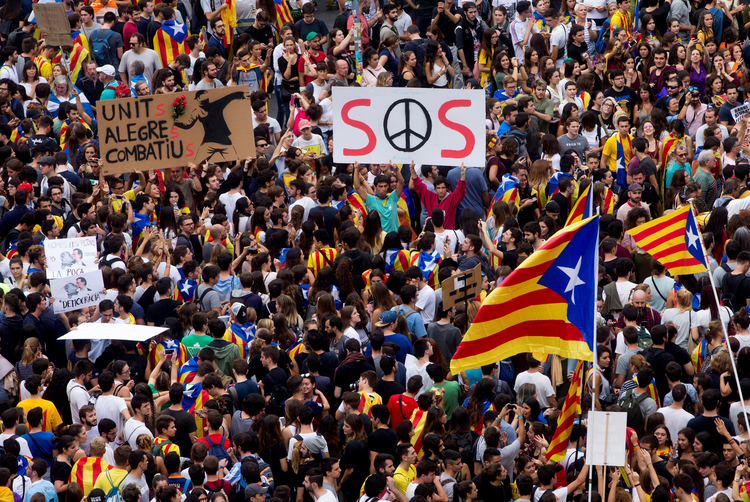Rethinking Europe: Pope Francis calls for unity and dialogue
“Christians are called to promote political dialogue, especially where it is threatened and where conflict seems to prevail,” Pope Francis told 350 participants at an international conference in the Vatican on the Christian contribution to the future of Europe.
Nov 03, 2017

By Gerard O’Connell
“Christians are called to promote political dialogue, especially where it is threatened and where conflict seems to prevail,” Pope Francis told 350 participants at an international conference in the Vatican on the Christian contribution to the future of Europe.
“Favouring dialogue, in any form whatsoever, is a fundamental responsibility of politics,” he stated. His remarks came as the biggest political crisis in 40 years unfolded in Spain over a failure to dialogue between the central government in Madrid and the government of the once autonomous Catalonia region in Barcelona. The crisis is also a major challenge to the European Union, where populism and extreme nationalism have emerged strongly in these years.
“Sadly,” Francis observed, “all too often we see how politics is becoming, instead of a forum, a platform for clashes between opposing forces. The voice of dialogue is replaced by shouted claims and demands. One often has the feeling that the primary goal is no longer the common good, and this perception is shared by more and more citizens.”
He drew attention to the fact that “extremist and populist groups are finding fertile ground in many countries; they make protest the heart of their political message, without offering the alternative of a constructive political project.” His words are particularly relevant in Europe today where this phenomenon has gained strength in several countries, including Germany, France, Italy, Austria and Holland.
Francis noted that “dialogue is replaced either by a futile antagonism that can even threaten civil coexistence, or by the domination of a single political power that constrains and obstructs a true experience of democracy. In the one, bridges are burned; in the other, walls are erected. Today, Europe knows both!”
In this situation, he said, “Christians are called to promote political dialogue, especially where it is threatened and where conflict seems to prevail.” They are also “called to restore dignity to politics and to view politics as a lofty service to the common good, not a platform for power.” But to do this, he said, there is need for a suitable formation, “since politics is not the ‘art of improvising’; instead it is a noble expression of self-sacrifice and personal dedication for the benefit of the community. To be a leader demands thoughtfulness, training, and experience.”
The conference — “(Re)Thinking Europe: A Christian Contribution to the Future of the European Project”— comes at an important moment in European history as populist and extreme nationalist movements are challenging the integrity, peace and stability of the European Union, with its 28-member states and population of 511 million people. These movements are exploiting the situation of youth unemployment, fears of mass migration and Islamophobia in the EU, and eliminating the sense of solidarity that was at the origins of its founding after two terrible world wars.
Francis insisted that dialogue is a cornerstone for the building of the whole of Europe “from the Atlantic to the Urals, from the North Pole to the Mediterranean.” Indeed, Europe “must be, first-and-foremost, a place of candid and constructive dialogue, in which all participants share equal dignity.”
In this context, he drew attention to “the positive and constructive role that religion in general plays in the building up of society” and recalled “the contribution made by interreligious dialogue to greater mutual understanding between Christians and Muslims in Europe.”
He lamented, however, that “a certain secularist prejudice, still in vogue, is incapable of seeing the positive value of religion’s public and objective role in society, preferring to relegate it to the realm of the merely private and sentimental.”
Because of this, he said, we see “the predominance of a certain groupthink” in international meetings “which sees the affirmation of religious identity as a threat to itself and its dominance, and ends up promoting an ersatz conflict between the right to religious freedom and other fundamental rights.” -- America Magazine







Total Comments:0